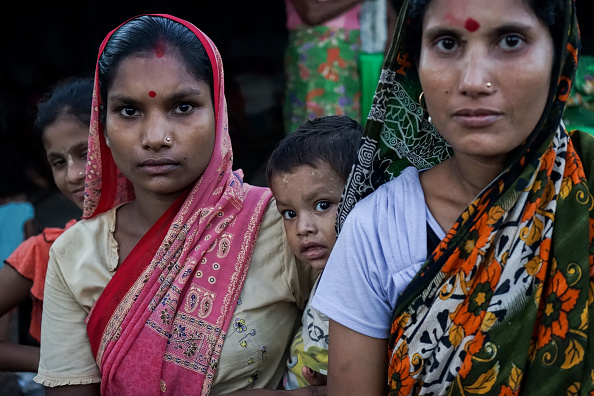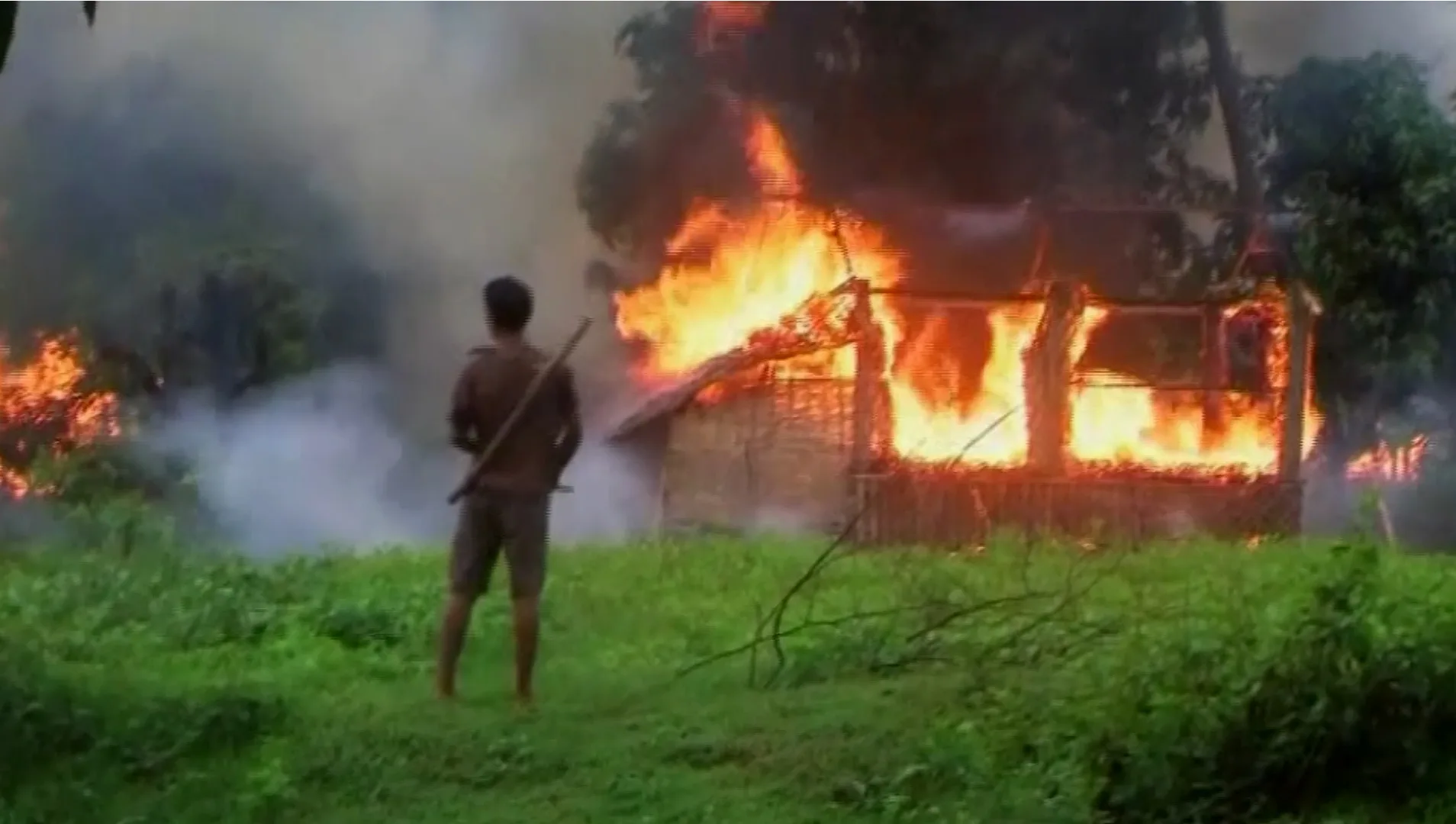New Probe Says Rohingya Militants Massacred Civilians

May 25, 2018
Share
Rohingya Muslim militants murdered dozens of Hindus in Myanmar’s Rakhine State last August, according to a report released by Amnesty International on May 22.
The findings offer new insight into the Myanmar military’s brutal military campaign against the Rohingya population, which has resulted in the mass displacement of almost 700,000 people from their homes in the last nine months.
In Myanmar’s Killing Fields, FRONTLINE reported on how the Myanmar military had accused a militant group, the Arakan Rohingya Salvation Army, or ARSA, for attacking security outposts. In response, the military launched a widespread campaign against the group, which has resulted in the mass killings, rapes and arson against Rohingya Muslim civilians.
But the new report says that ARSA is also guilty of murdering civilians. The group was responsible for killing up to 99 Hindu civilians in the incident Amnesty investigated, it said — sparing only eight women and eight children who they abducted and forced to convert to Islam. Armed men dressed in black, and local Rohingya villagers in plain clothes, rounded up, blindfolded, and executed Hindu men, women, and children, survivors said.
“They slaughtered the men,” Raj Kumari, an 18-year-old survivor, told investigators. “We hid ourselves in the shrubs there and were able to see a little… my uncle, my father, my brother — they were all slaughtered…. after slaughtering the men, the women were also slaughtered.”
Carrying knives and long iron rods, the men tied the Hindu villagers’ hands behind their backs, and blindfolded them, according to 22-year-old Bina Bala, a survivor of the attack. “I asked what they were doing. One of them replied, ‘You and Rakhine are the same, you have a different religion, you can’t live here,” she said.
ARSA has denied the allegations that they killed Hindu civilians, according to Reuters.
In August, ARSA militants attacked 30 police posts and an army base in northern Rakhine State. Eleven policeman and an immigration officer were killed, according to Myanmar’s government. ARSA attacks on Hindu villagers allegedly occurred on the same date, according to the report.
In the wake of that attack against security posts, the military unleashed what the United Nations and the United States have described as ethnic cleansing against the Rohingya, a stateless minority group that lacks citizenship rights and has faced discrimination for decades.
In 2012, after violence between Muslim Rohingya and the Buddhist Rakhines, the majority ethnic group in the state, 120,000 Rohingya were confined to ghettos and camps, with restrictions imposed on all aspects of their lives, from health care and education to the ability to move freely in the country.
“We have documented, since 2012, what amounts to as a system of apartheid in Rakhine State in which the Rohingya have been denied their most basic rights,” said Matthew Wells, Senior Crisis Advisor with Amnesty International. “There has been a system of persecution and discrimination that has been put in place and enforced that has grossly undermined the Rohingya people’s rights.”
ARSA first caught the government’s attention in October 2016, after it claimed responsibility for attacks on three police posts that resulted in the deaths of nine border officers. While Myanmar’s leader, Nobel Laureate Aung San Suu Kyi, vowed that her government’s response to the attacks would be measured, the military instead unleashed a major crackdown in villages across Northern Rakhine State.
“They didn’t check who is good and who is bad,” Nurul Islam, a Rohingya villager who survived the Nov. 2016 attacks, told FRONTLINE in Myanmar’s Killing Fields. “To them, we are all ARSA.”
Wells said that despite the Rohingya being subjected to persecution at the hand of Myanmar’s military, it cannot excuse ARSA’s actions in rounding up and massacring Hindu villagers last August. Around 10,000 Hindu live in Rakhine State, according to Myanmar’s 2014 census on religion, and they make up less than one percent of the total population.
He said last summer’s killings have left a deep impact on the Hindu community, and many of the people he interviewed said that they now live with constant fear.
“There are now two distinct truths about what happened in August: the first is that the Myanmar military, in response to ARSA’s attacks on security force posts, launched an operation that was grossly disproportionate and marked by clear crimes against humanity,” Wells said.
“At the same time, in a few incidents, ARSA fighters attacked not just security force posts but also ethnic minorities, including Hindu. So, the fighters who killed Hindu innocents… they too ultimately need to be investigated and brought to justice for the crimes that they committed.”

Related Documentaries
Latest Documentaries
Related Stories
Related Stories
Explore
Policies
Teacher Center
Funding for FRONTLINE is provided through the support of PBS viewers and by the Corporation for Public Broadcasting, with major support from Ford Foundation. Additional funding is provided the Abrams Foundation, Park Foundation, John D. and Catherine T. MacArthur Foundation, Heising-Simons Foundation, and the FRONTLINE Trust, with major support from Jon and Jo Ann Hagler on behalf of the Jon L. Hagler Foundation, and additional support from Koo and Patricia Yuen. FRONTLINE is a registered trademark of WGBH Educational Foundation. Web Site Copyright ©1995-2025 WGBH Educational Foundation. PBS is a 501(c)(3) not-for-profit organization.





















